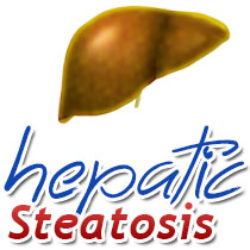We think of hepatitis as an infectious disease of the liver caused by any of several virus strains and classified as type A, B, or C hepatitis, but in fact the term means only an inflammation of the liver regardless of cause. While hepatitis can and frequently does arise from a viral infection, it can also result from excessive consumption of alcoholic beverages. This condition is known as alcoholic hepatitis. Although arising from a different cause, and in the early stages being easier to treat, alcoholic hepatitis can be just as dangerous to health and life as infectious hepatitis.
Symptoms
Alcoholic hepatitis can occur without overt symptoms. When symptoms do present, they can include a generalized unwell feeling, ascetes (accumulation of fluid in the abdomen), abdominal swelling, jaundice, and of course enlargement of the liver itself, which can be revealed through medical imaging technology such as an ultrasound or MRI (magnetic resonance imaging).
Alcoholic hepatitis can also result in elevated liver enzymes as revealed by a blood test for liver functioning, and the presence of these signs calls for further diagnostic testing to determine the nature of the damage and the cause.
Diagnosis
Diagnosis of alcoholic hepatitis requires that two factors be positively identified: hepatitis (inflammation of the liver) and excessive alcohol consumption.
A diagnosis of infectious hepatitis should also be ruled out through appropriate diagnostic tests for infectious hepatitis, but the presence of any kind of liver disease along with excessive consumption of alcohol requires a recommendation that the patient stop drinking. A diagnosis of alcoholic hepatitis also indicates testing for other forms of alcoholic liver disease, such as cirrhosis.
Is It Contagious?
Alcoholic hepatitis, unlike infectious hepatitis, is not contagious. It is caused
by a lifestyle factor, excessive consumption of alcohol, rather than by an infectious microorganism. There is no danger of acquiring the disease from association with someone who suffers from it or through offering medical treatment, or even through blood contact.
Prognosis
Alcoholic hepatitis can occur in varying degrees of severity. It can also occur in
conjunction with alcoholic liver disease of other kinds, such as cirrhosis of the
liver. In the most severe cases, alcoholic hepatitis can be fatal. If the condition
is caught before it progresses to a stage in which liver functioning is severely
impaired, it can be arrested with sufficient liver functioning intact to live a normal life, and much of the damage can even be reversed through natural healing processes.
Signs of severe alcoholic hepatitis can include obtundation (dulled consciousness) and blood indicators including elevated bilirubin levels. When these signs are present, mortality is a serious concern and aggressive treatment (above and beyond cessation of drinking) is indicated.
Treatment
In all cases, the first recommended treatment for alcoholic hepatitis, as for all
alcohol-
Excessive alcohol consumption also causes other problems of the liver and has a negative effect on health generally. For that reason, any occurrence of liver damage in conjunction with excess alcohol intake calls for cessation of drinking on the part of the patient.
In cases of severe damage, further treatment may be recommended, including corticosteroids, especially glucocortisoids, or with pentoxifylline (a drug that improves blood circulation to the organs). Especially severe damage may require a liver transplant. If the disease has progressed to that point, it is considered terminal.
